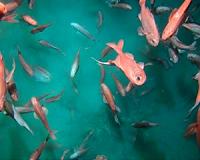| . |  |
. |
Bristol, UK (SPX) Sep 23, 2010 Healthy reefs with more corals and fish generate predictably greater levels of noise, according to researchers working in Panama. This has important implications for understanding the behaviour of young fish, and provides an exciting new approach for monitoring environmental health by listening to reefs. Contrary to Jacques Cousteau's 'Silent World', coral reefs are surprisingly noisy places, with fish and invertebrates producing clicks and grunts which combine to produce cacophonies of noise. Each reef is subtly different depending on the size and composition of the resident community. By analysing recordings of coral reefs from the Las Perlas Archipelago in Pacific Panama (Central America), marine biologists have found that some reefs are noisier than others, and these differences in noise provide useful information about the state of the reef. Exeter University PhD student Emma Kennedy and her supervisor Dr Steve Simpson, working with an acoustician Dr Marc Holderied, also from the University of Bristol's School of Biological Sciences, found that healthier reefs were louder, with a clear association between overall noise level generated and the amount of living coral. A more detailed investigation of the sound produced by some of the reefs showed that lower frequency sounds provided more information on the numbers of fish living on the reef, while the intensity of higher frequency reef sounds gave an indication of coral diversity. This is the first time that a link has been made between noise generated by individual reefs and the specific habitats and communities making up that reef. Previous work by Dr Steve Simpson has shown that larval fish and corals returning to reefs after spending their first few weeks out in the plankton, search for habitat by listening out for, and moving towards, reef noise. Sound travels well underwater, meaning that noise produced by a reef can propagate several kilometres out to sea. Dr Simpson said: "This study provides evidence that reef generated sound contains a real richness of information. This would provide fish and invertebrates with the cues they need to assess the quality of potential settlement sites before they can see them, a bit like wandering around a music festival eavesdropping on different bands before choosing where to pitch your tent. It may even provide the information that enables some fish to return to the very reef on which they were originally spawned." The study also highlights the potential for using audio recordings to monitor the health of reefs. Usually, scientific assessment of reef health requires teams of scuba divers and huge quantities of equipment and so is costly, time consuming and difficult in remote areas. In this study, scientists dropped a cable off the side of the boat with a hydrophone (underwater recording device) attached. A two-minute recording contained enough information to distinguish between reefs. This is a very encouraging find for the development of acoustic recordings as ecological survey or monitoring tools. The team are hoping that their findings will prompt other scientists to investigate reef sound further. Emma Kennedy said: "Investigation of the acoustic properties of reefs is a relatively new area of science but already we're realising that there's more to underwater noises than just whale and dolphin communication! Reefs may be broadcasting a lot of information out into the sea that both humans and marine animals could use. We're hoping that our findings will encourage more research into this area, and are excited this might lead to the development of new tools for assessing reef health."
Share This Article With Planet Earth
Related Links University of Bristol Water News - Science, Technology and Politics
 Marine Scientists Unveil The Mystery Of Life On Undersea Mountains
Marine Scientists Unveil The Mystery Of Life On Undersea MountainsWashington DC (SPX) Sep 23, 2010 They challenge the mountain ranges of the Alps, the Andes and the Himalayas in size yet surprisingly little is known about seamounts, the vast mountains hidden under the world's oceans. Now in a special issue of Marine Ecology scientists uncover the mystery of life on these submerged mountain ranges and reveal why these under studied ecosystems are under threat. The bathymetry of our ocean ... read more |
|
| The content herein, unless otherwise known to be public domain, are Copyright 1995-2010 - SpaceDaily. AFP and UPI Wire Stories are copyright Agence France-Presse and United Press International. ESA Portal Reports are copyright European Space Agency. All NASA sourced material is public domain. Additional copyrights may apply in whole or part to other bona fide parties. Advertising does not imply endorsement,agreement or approval of any opinions, statements or information provided by SpaceDaily on any Web page published or hosted by SpaceDaily. Privacy Statement |